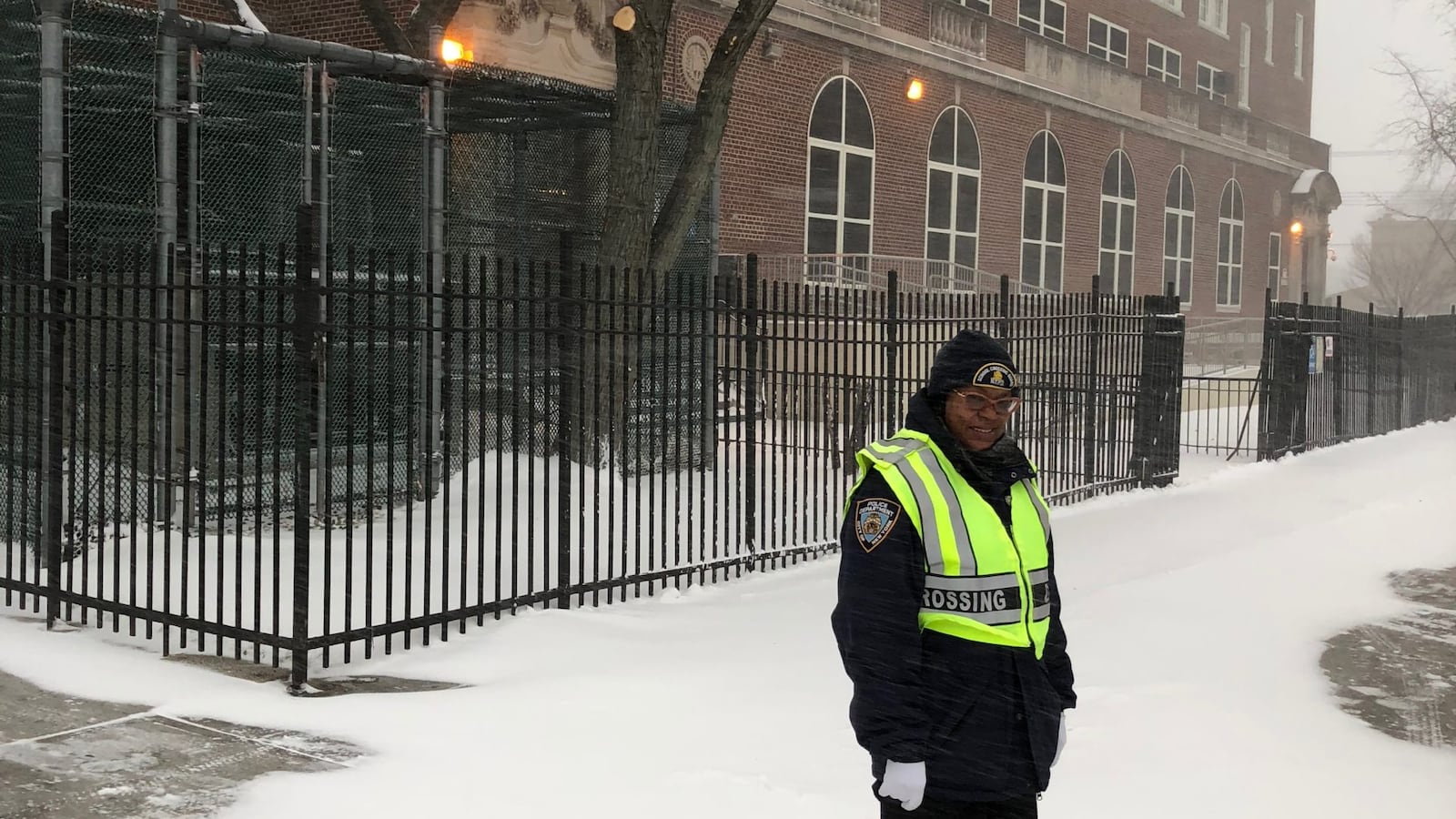New York City schools weren’t open for classes Monday morning, but Grace Spinks still woke up at 5 a.m., pulled on her crossing guard uniform, and headed to the Brooklyn street corner she patrols.
Students can pick up breakfasts and lunches at their schools for at least the next week, which means crossing guards like Spinks are still reporting for duty. After that, she’s not sure whether she’ll continue to work — or get paid.
Crossing guards don’t earn a paycheck when school is not in session, whether it’s a snow day, most holidays, or summer vacation. Neither do a host of other school employees — along with many other workers across the city — who are now staring down an unprecedented crisis with questions about how they’ll afford to pay their rent or stock up on food.
New York City officials hope to reopen schools on April 20, but Mayor Bill de Blasio said Monday that will be “very difficult to achieve” as the new coronavirus continues its exponential spread.
The shutdown has exposed how the country’s largest school system is also an economic engine for those who rely on it for a paycheck, and their struggle may only become greater as the city weighs a potential order to “shelter in place,” Mayor Bill de Blasio said Tuesday at a press conference.
“What is going to happen with folks who have no money? How are they going to get food? How are they going to get medicines?” he asked. “I believe we have to quickly come to grips with those questions and determine different contingency plans.”
Even before the pandemic, Spinks said some of her colleagues were homeless. Others cannot afford warm socks in the winter, when crossing guards are out before the sun breaks — often the coldest part of the day.
“I find it so unfair. It seems like we’re last on the list to get anything,” said Spinks, who helps families from Mill Basin’s P.S. 236 and the Hebrew Language Academy Charter School. “We are talking about five weeks. A lot of them are saying, ‘What happens to my bills?’”
There are about 2,600 crossing guards in New York City who work under the police department making the $15 state minimum wage or just barely more. They stand in the heat, snow, and rain to help children safely make it to class at public, private, and charter schools.
“I always hate when schools close for them, because I know they don’t get paid,” said Shaun D. Francois I, president of District Council 37, who also heads the local that represents many school support employees, including crossing guards. “Give them some respect.”
Spinks became a crossing guard after living through 9/11, when her previous job with American Express was outsourced. She soon had a stroke and was not recovering while staying at home, so she decided she needed to work, and her job has helped her regain her speech.
“It was low pay for me, but I need people. I need the kids, and it did help with my therapy. So that’s one reason why I’m still on the job,” she said. “This job is really a sense of living.”
When the coronavirus first hit New York City, substitute teacher Larissa Lowe Gonzalez’s phone started ringing off the hook as some educators began calling in sick.
But with schools transitioning to remote learning, Gonzalez is worried that the work will completely dry up.
For the Manhattan-based single mom of two boys, the switch to remote learning could have outsized economic consequences: Her other income source on top of substitute teaching is a business that provides the sport fencing in after-school programs.
“I have two income streams and they are both trashed completely,” said Gonzalez, whose teens are in city public schools. “I’m in the category of people who has less than $4,000 for an emergency. When that’s gone, we’re done.”
She is also worried about losing her license to substitute teach. The city requires subs to teach for at least 20 days to maintain their license and she’s completed only nine so far. Subs make $188.75 per day.
It’s unclear what role subs will play as the city transitions to remote learning.
“[Subs]may also have opportunities to work as we continue to build out this model,” an education department spokesperson said, explaining they might have roles to play at “regional enrichment centers” that will supervise children of “first responders,” such as healthcare workers. Officials said they are considering changes to the 20-day requirement and expect to make a decision “in the coming weeks.”
A spokesperson for the city’s teachers union, Alison Gendar, stressed that “the work of the school system continues, though in a different form, so all employees doing that work will continue to be paid.” She added that subs who work for a daily rate such as Gonzalez are an exception, though she also said they will be offered work at the enrichment centers.

